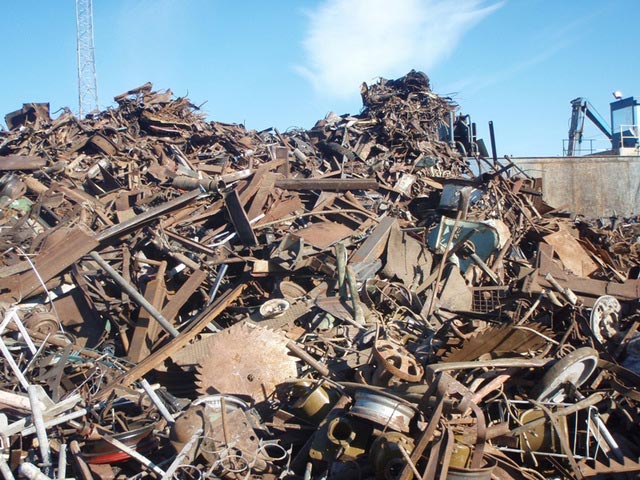Kuwaiti factory owners say they face closure as a result of export of copper, scrap and crushed iron, aluminum, used oils, paper, plastic and glass,electronic waste and used batteries, despite explicit government decisions in this regard, which prevent the export of recyclable waste.
In this regard, a local Arabic daily said a decision was issued to regulate the export of waste by former Minister Dr. Abdullah Al-Salman on June 4, 2021, in addition to the recent decision issued by the Minister of Commerce and Industry Fahd Al-Shariaan under No. 19 of 2022, which prohibits the export of iron scrap during from March 17 to June 17, 2022.
Despite the previous decisions, dealers and manufacturers said the door to exporting a lot of liquid and solid waste is still open, albeit partially or exceptionally, despite the Kuwaiti market’s need especially in light of the current global conditions for such waste such as iron, copper, paper, cardboard, plastics and other local industries.
The CEO of the First Iron Industry Company, Ahmed Al-Kharafi, stressed the Kuwaiti market’s need for all iron scrap waste of all kinds without exception, noting at the same time that the current iron scrap waste is not sufficient for the needs of local factories, as evidenced by the fact that Kuwait imports hundreds of tons of iron, iron waste annually so that the Kuwaiti factories can operate to their maximum potential.
He added preventing the export of iron scrap would maintain the stability of iron prices in Kuwait, fill a percentage of the local market’s needs of iron and limit the current price hike, especially after the prices of rebar used in construction operations witnessed sharp increases recently in the local market as a result of the impact of the Russo-Ukrainian war on the world markets.
Al-Kharafi explained iron scrap is used by many industries, such as rebar and construction, consumer industries, air-conditioning industries, equipment, machinery, and others, and therefore it is of great importance for any country in the world, especially for Kuwait, which is currently experiencing a huge urban development, whether for government projects or others such as the new housing in the cities of Al-Mutla’a, Southern Khaitan, and others, which will need thousands of tons of iron and various construction materials.
Al-Kharafi stressed the importance of activating decisions to prevent exports, similar to many countries of the world that have issued decisions related to many food and consumer products and other decisions, especially since the whole world is living in exceptional circumstances that require them to preserve their basic resources to avoid any future problems.
For his part, the Director General of United Paper Industries, Nabil Al-Qena’i, expressed his dissatisfaction with the continued export of waste abroad, despite the urgent need of the local market for these products, stressing that the continued opening of the door for export caused a severe shortage of waste locally and a significant increase in the prices of these products, which disrupted the work of many factories, and some of them even stopped working at times, especially in light of the export of more than 6 thousand tons of paper waste annually.
He said that his company, which works in the field of carton manufacturing, has long been suffering from exporting waste paper and cardboard abroad, specifically to India, China and other countries that import these products for use in the production of white paper, as these countries pay large sums of money.

















